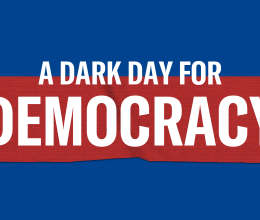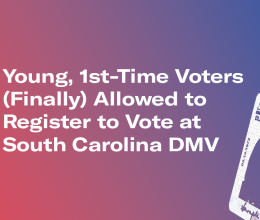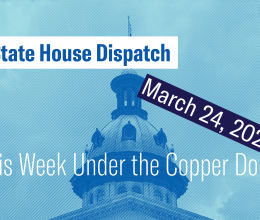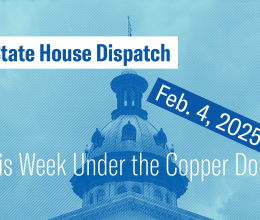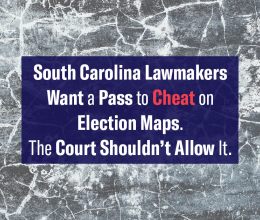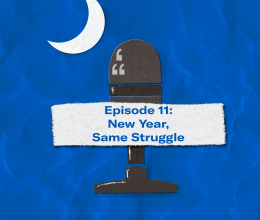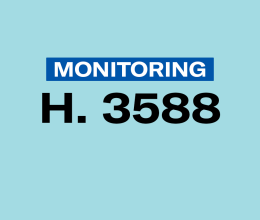COLUMBIA – Nonpartisan civil rights organizations argued before the South Carolina Supreme Court today that the state constitution forbids partisan gerrymandering, or the rigging of electoral maps to protect a political party’s advantage in elections.
Republican state lawmakers have repeatedly stated that they gerrymandered South Carolina’s First Congressional District map to “pull the First red” and meet a specific goal for Republican vote share in the district. In the lawsuit League of Women Voters of South Carolina v. Alexander, the League and its legal team argue that these bald-faced admissions fly in the face of the South Carolina Constitution.
"South Carolinians have the right not just to vote, but to cast a vote that genuinely reflects the interests of their community," said Nancy Williams, President of the League of Women Voters of South Carolina. "The existing map was drawn not to give voice to voters but to protect politicians. The League of Women Voters of South Carolina is proud to fight for equality of political power for all South Carolina voters, and we hope the court will issue an order that allows us to have a true voice in how we are governed."
“Voters should be appalled. Our state’s leading politicians believe that redistricting serves primarily to serve their own interests rather than the interests of the voters themselves,” said Allen Chaney, Legal Director of the ACLU of South Carolina. “They argued today in court that our State Constitution provides no check on that antidemocratic result. This is hopefully something that the Supreme Court will not embrace.”
“South Carolina’s constitution protects voters from having their voices manipulated for partisan gain,” said Adriel I. Cepeda Derieux, Deputy Director of the ACLU Voting Rights Project. “Legislators’ admission that they drew the State’s congressional map to entrench one political party in power is not just undemocratic — it’s against the law. Today, we’ve asked the Court to restore the State Constitution’s promise of free and fair elections where every South Carolinian’s vote counts the same.”
The legal team filed the lawsuit on behalf of the League of Women Voters of South Carolina on July 29, 2024. With today’s oral arguments, attorneys are asking the state’s highest court to bring the Congressional district map into compliance with the state constitution.
The South Carolina Constitution, Article 1, Section 5, states: “All elections shall be free and open, and every inhabitant of this State possessing the qualifications provided for in this Constitution shall have an equal right to elect officers and be elected to fill public office.” In other states with “free and open” or “free and equal” election clauses in their constitutions, courts have found that partisan gerrymandering claims were justiciable at the state level, including in Pennsylvania (LWV of PA v. Commonwealth), New Mexico (Grisham v. Van Soelen), and Kentucky (Graham v. Adams).
This case is separate from the racial gerrymandering case previously filed in South Carolina, Alexander v. SC NAACP, which argued that mapmakers were illegally using the race of voters as a proxy for partisan advantage in District 1. That case ended with a 6-3 loss before the U.S. Supreme Court in May 2024. LWV-SC v. Alexander is built partly on statements that the state’s highest officials made in the course of the previous case. Attorney John Gore, who represented the South Carolina lawmakers responsible for drawing the map, said the following in his opening arguments before the U.S. Supreme Court:
“The panel acknowledged that the General Assembly pursued a political goal of increasing District 1’s Republican vote share. It achieved that goal by moving Republicans into the district and Democrats out of the district.”
The Princeton Gerrymandering Project gives South Carolina’s Congressional district map an F for partisan fairness and an F for competitiveness. Another nonpartisan site, PlanScore, notes that South Carolina’s House redistricting plan was more skewed than 98% of enacted plans nationwide.
The result? Congressional District 1, a district traditionally anchored in Charleston that was once considered competitive, now skews so heavily Republican that elections are effectively decided in the Republican primary. Nationwide studies have shown that this pattern of partisan gerrymandering, widely practiced by both parties in states where they hold power, produces less responsive representatives who pursue more extreme social policies.
More information and filings from the case are available on the ACLU of South Carolina website. Video of today’s oral arguments will be archived on the S.C. Judicial Branch website. For more information about partisan gerrymandering, see the our glossary of terms, statistics, and studies.

